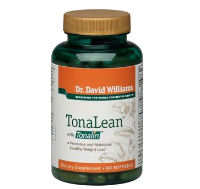| Epigallocatechin-Gallate, also known as EGCG, has powerful antioxidant properties and is a component of green tea, as well as many nutritional supplements. It does appear in black tea, but at a much smaller concentration, because black tea leaves undergo fermentation, changing many of the catechins. Here are facts you may not know about this powerful weapon against many of the toxins in your body.
- EGCG can help in fighting cancers of the bladder, cervix, prostate and brain by surrounding molecules of a certain protein that helps cells (both cancerous and noncancerous) thrive.
- ECGC reduces the various plaques that can cause AIDS-based dementia. However, these results have only occurred in the laboratory, with no human trials yet. What is certain though, is that the ECGC dosage would have to be significantly higher than what is found in green tea.
- ECGC provides protection against several autoimmune diseases like Sjoegren's syndrome, primarily by alerting the body's immune system to the dangers of TNF-alpha proteins, which cause inflammation throughout the body.
- Some studies have shown that ECGC can protect your DNA from mutating after exposure to visible and ultraviolet radiation.
- ECGC may be a useful component in reducing body weight and oxidizing body fat. It also has reduced glucose levels in mammal studies, with human trials still in the development phase.
- ECGC may be able to prevent the joint destruction that accompanies rheumatoid arthritis, because of its compatibility with synovial fibroblasts.
- ECGC has shown the ability to limit the development of mutant proteins that cause the progression of Huntington's disease.
- Liver inflammation associated with hepatitis would happen at a much slower rate with an ECGC regimen, according to a mammal-based study.
- Human bones also can benefit from an ECGC regimen. A study at the University of Toronto connected a rise in mineralized bone nodules with regular doses of ECGC.
 Even though the benefits are strong, ECGC also has some potential downsides – any supplement that alters body chemistry possibly could cause harm in some manner. And while ECGC does have much promise, many of the benefits have been observed in mammalian studies – but not in live human trials. So while there is room for optimism, it's a bit early to order green tea by the drum. First, you can experience insomnia or anxiety if you ingest too much caffeine from the tea, although caffeine-free forms of green tea are available. Possible issues to be considered are; Even though the benefits are strong, ECGC also has some potential downsides – any supplement that alters body chemistry possibly could cause harm in some manner. And while ECGC does have much promise, many of the benefits have been observed in mammalian studies – but not in live human trials. So while there is room for optimism, it's a bit early to order green tea by the drum. First, you can experience insomnia or anxiety if you ingest too much caffeine from the tea, although caffeine-free forms of green tea are available. Possible issues to be considered are;
- Pregnant and nursing women should not consume green tea. There is a risk of malignant tumors in the central nervous system for children whose mothers consumed green tea during pregnancy, and neonatal leukemia is also a risk for infants whose mothers drank green tea at high levels.
- Another possible danger associated with ECGC is its interaction with Velcade, a common cancer-fighting drug. The chemical bonding between the medicine and ECGC robs the medicine of any benefit.
As with many nutritional supplements, it is always best to consult with your doctor before beginning an extended regimen |
